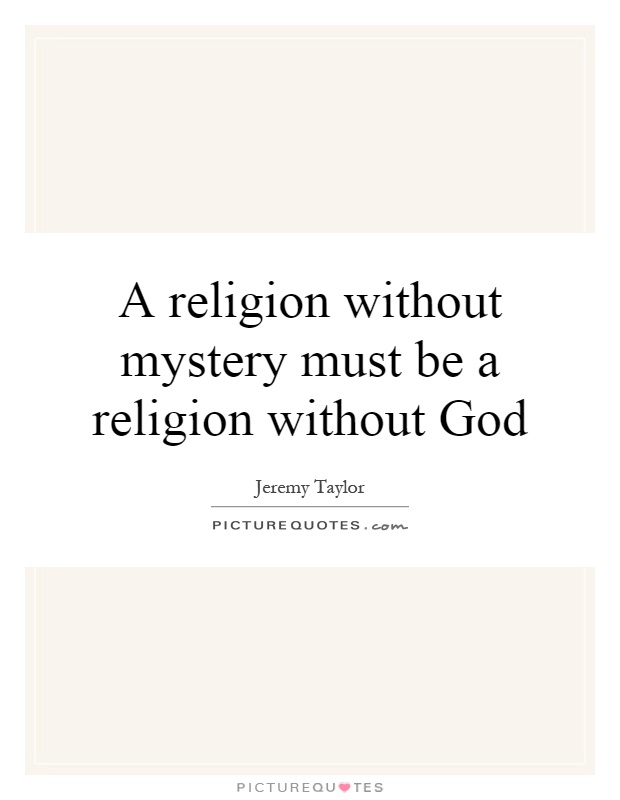A religion without mystery must be a religion without God

A religion without mystery must be a religion without God
Jeremy Taylor, a prominent theologian and writer in the 17th century, is often quoted as saying, “A religion without mystery must be a religion without God.” This statement encapsulates the idea that the essence of religion lies in its ability to evoke a sense of wonder, awe, and reverence for the divine. Without mystery, religion becomes a mere set of rules and rituals, devoid of the transcendent and the sacred.Taylor’s assertion can be understood in the context of his own theological beliefs, which emphasized the importance of mystery in the Christian faith. He believed that God’s nature and actions are ultimately beyond human comprehension, and that the mysteries of faith are meant to inspire humility, faith, and wonder in believers. For Taylor, a religion that seeks to explain away all mysteries and reduce God to a mere concept or idea is missing the point of true religious experience.
In Taylor’s view, mystery is not something to be feared or avoided, but rather embraced as an essential aspect of the divine. The mysteries of faith, such as the Trinity, the Incarnation, and the Resurrection, are meant to challenge and stretch our understanding, leading us to a deeper appreciation of the infinite and unknowable nature of God. Without mystery, religion becomes shallow and superficial, lacking the depth and richness that comes from grappling with the ineffable and the transcendent.
Furthermore, Taylor believed that mystery is essential for cultivating a sense of awe and reverence in our relationship with God. When we encounter the mysteries of faith, we are reminded of our own limitations and the vastness of the divine. This awareness can lead to a sense of humility and wonder, as we recognize our place in the grand scheme of creation. Without mystery, religion can become overly rationalistic and intellectual, losing touch with the emotional and spiritual dimensions of faith.












 Friendship Quotes
Friendship Quotes Love Quotes
Love Quotes Life Quotes
Life Quotes Funny Quotes
Funny Quotes Motivational Quotes
Motivational Quotes Inspirational Quotes
Inspirational Quotes